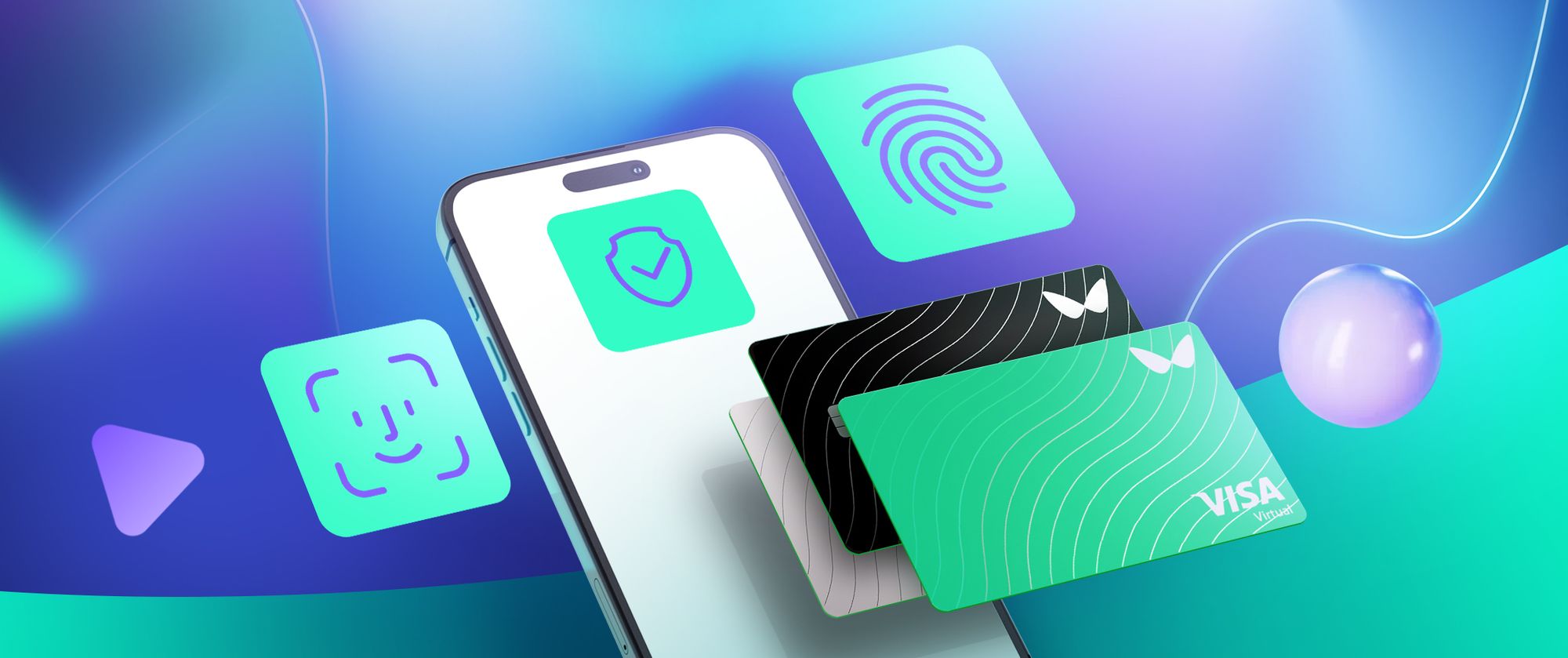Credit cards have become a critical financial tool in the modern era because they offer unparalleled convenience and allow us to access our funds, pay our bills, and make online and offline purchases without having to carry any cash. The first modern credit card was dubbed the Diners Club card and was invented in 1950 by Frank McNamara, a businessman who had forgotten his wallet at home while at dinner in New York. Together with his business Partner, Ralph Schneider, they created the Diners Club card to help pay for meals in local restaurants, with customers expected to pay the full balance monthly.
Since then, credit cards have come a long way, evolving from simple pieces of plastic into sophisticated financial tools. Companies in the credit card industry have tried to enhance the security and functionality of these cards through embedded microchips (commonly known as EMV) and magnetic strips. Nonetheless, these payment cards are not without their fair share of risks, the most predominant being credit card fraud. This article is your guide to understanding credit and debit card fraud and how to protect yourself.
What is Credit Card Fraud?
Credit card fraud is a type of financial crime where malicious individuals access your card information and use it to illegally make unauthorized purchases or obtain cash advances, among others- all at your expense. Card scams fall into two broad categories: application fraud and account takeover. Ideally, application fraud entails opening a credit card account using another person’s identity information without their consent. On the other hand, account takeover generally involves hijacking someone’s credit or debit card info and subsequently using it to make fraudulent transactions.
Technological advances have significantly contributed to the rising rates of credit card fraud worldwide. For instance, the rise of online purchasing and e-commerce means that criminals do need a physical card to make unauthorized transactions. Not to mention, electronic databases that contain credit card details may be hacked by malevolent third parties, exposing customers’ info to a lot of risk. As a credit and debit card user, you need to recognize signs that you may be a victim of fraud so that you can take the necessary protective steps as soon as possible.
What are the signs that you have become a victim of credit card fraud?
A 2021 report by the European Central Bank (ECB) reported that over 1.83 billion euros were lost in credit card fraud in Europe. Although these numbers have declined since the implementation of the strong customer authentication under the revised EU Payment Services Directives (PSD2), fraud cases have still been reported regarding both local and cross-border card transactions. This means that there is no shortage of thieves looking to get your payment info and steal your money. The best way to reduce the chances of becoming a victim of credit card scams is to recognize the red flags and take quick action to limit the damage. We have compiled the following list of clues that you use to determine whether you are a victim of potential fraud.
1. Unexplained Transactions: You should be on the lookout for any unfamiliar transactions on your credit card statements because it could mean that an unauthorized party is using your accounts to make payments.
2. Suspicious messages: Whenever you receive text messages or emails requesting your credit card information, you should exercise extreme caution to protect yourself. For example, avoid clicking on any links and, if necessary, directly contact the institution associated with these messages. You can also contact your credit card issuer to get to the bottom of things.
3. Account Activity Anomalies: You should constantly review your credit reports to identify any unusual activity or balance discrepancies within your account. This way, you can act promptly if you detect anything fishy.
4. Unexplained changes to your credit score or credit report: You should keep tabs on your credit score and bank statements to ensure that you are up to date. If your score drops suddenly, it could mean that an unauthorized party has opened accounts in your name.
5. Unauthorized Account Access: If you notice unapproved access to your online banking or credit account, you should immediately report to your card provider.

Types of Credit Card Fraud?
According to the Federal Trade Commission (FTC), credit card fraud is one of the fastest-growing forms of identity theft. It can occur over the phone, in person, through fake emails, and by text messages. Sometimes, you can have your personal information stolen in a data breach, or your cards can be stolen; these are just a few possibilities. Here is our list of some of the most common types of credit card fraud.
1. Card skimming: Criminals can use skimming devices to capture your card information from ATMs, retail stores, gas stations, and other point-of-sale terminals. They can either sell this information or use it to commit fraud themselves.
2. Phishing scams: Fraudsters will use fake emails or messages, masquerading as legitimate organizations. In such cases, they get you to divulge your personal information, which they can use to create new accounts or steal money from your existing accounts.
3. Lost or Stolen Cards: One of the most basic and common forms of card fraud is to access an individual’s credit accounts using stolen or lost physical credit cards. This is why you are advised to immediately report stolen or lost cards to your card issuer or local law enforcement.
4. Cloned Cards: Sometimes, criminals can generate duplicate cards using stolen personal information and use them to accrue fraudulent charges.
5. Account Takeover: Hackers can gain access to your existing accounts, allowing them to steal money and make fraudulent transactions. Sometimes, they can use stolen personal information to contact your credit card issuer or bank and change your passwords or PINs. Usually, this type of fraud is detected when the cardholder tries to use their accounts but is locked out.
6.Card-not-present (CNP) fraud: Scammers can steal your credit card or personal information and use it to make unauthorized online payments. This type of fraud is challenging to prevent because there isn’t a physical card available for the merchant to use to verify the buyer’s identity.
7.Credit card application fraud: In this case, thieves use stolen personal information to apply for new credit cards. This crime can go undetected until the victim tries to apply for a card themselves or checks their bank statements and credit reports. Although the victim of fraud is not held responsible for any charges made to a fraudulent credit card account, their credit score can be affected. An article posted in The Wall Street Journal highlighted that a damaged credit score can lead to difficulties obtaining credit, higher interest rates, limited financial options, and potential repercussions in areas like employment, housing, and even accessing services at coffee shops or dealing with government agencies.
How to Avoid Credit Card Fraud?
The good news is that most major credit card issuers offer zero fraud liability to their clients. However, you still need to take proactive measures to defend yourself against credit card fraud. Here are some practical steps that you can take to shield yourself from these scams:
- Regularly review your credit card statements and promptly report any unauthorized transactions to your card provider.
- Enhance your password security by using unique passwords for your online account and enabling multi-factor authentication whenever possible.
- Avoid sharing your personal or credit card information via email or text to unverified entities.
- Beware of unsolicited communication and always verify the identity of the sender.
- Always safeguard your physical cards and immediately report them in case of loss or theft.
- When making online transactions, opt for secure websites. To do this, look for the padlock symbol in the browser and scrutinize website URLs.
What to do if you are the victim of credit card Fraud?
Anyone can be a victim of credit card fraud. In 2021, the FTC reported that over 400,000 Americans had been card fraud victims. We have compiled the following list of steps that you can use to resolve the situation if you are in a similar case. Please note that you can apply these measures in any order.
1. Inform your card Issuer: Once you discover any unauthorized transactions on your credit report, you should immediately reach out to your card provider and request them to freeze your account to prevent further fraudulent activity. Some companies will let you make the report on their app, website, or via call. Eventually, they may cancel the card and issue you a different one.
2. File a report with Local Law Enforcement: If your card has been stolen or an online card fraud is confirmed, it is important to report the crime to local authorities. Although not every case of identity theft results in the involvement of the police, reports can help in other ongoing investigations and may help you recover any other belongings stolen alongside your physical card.
3. Place a fraud alert with Credit Bureaus: To protect your credit score, you should place a fraud alert with the credit bureaus, notifying them of the potential fraud. Credit monitoring is important because thieves can run up charges in your name, resulting in a poor credit score.
4. Freeze or Close compromised accounts: If necessary, you should take the initiative to freeze or close compromised accounts as a precautionary measure to stop additional suspicious activity.
5. Dispute any Unauthorized Charges: You should thoroughly examine your credit report and bank statements to spot any unusual charges. If you find any, ensure that you dispute them, seeking their removal.
6. Review and Update Security: It is important to maintain a high vigilance level and remain attuned to any future signs of fraudulent activity. In this regard, Wallester advises you to regularly upgrade your passwords and PIN to prevent future breaches, especially when it comes to online banking.
Reporting Credit card Fraud
Although most credit card companies offer zero fraud liability on unauthorized charges, you must still take the necessary steps to report card fraud. First, you should inform your card issuer of any unusual or suspicious charge. According to the Fair Credit Billing Act,cardholders are obligated to report any fraudulent charges within 60 days of receiving their billing statements with the unusual charge. However, you should report to your card provider or bank as soon as you notice potential fraud. Once you have informed them, consider changing your passwords and adding a multifactor authentication if possible. In doing so, you protect yourself from further credit card fraud. If fraud is confirmed, report it to the local authorities and credit bureaus. To report stolen credit cards or debit cards, go to IdentityTheft.gov. This will help protect your financial information and prevent high credit utilization or missed payments.
More Tools to Stay Protected
Consider these additional protective measures to protect yourself against credit card fraud:
- Regularly monitor your credit reports
- Enrol for free credit monitoring services to get notifications or transaction alerts anytime there is a credit check or in case of attempted fraud.
- Educate yourself about common scams and fraudulent tactics to avoid falling prey to them.
- Be cautious with your personal information, including your account numbers or card information.
Key Takeaways
In a world where most financial transactions are done via credit cards, it is important to stay vigilant to avoid being a victim of fraud. Taking proactive measures such as educating yourself, securing your financial information online, and reporting any identity theft cases is critical. Importantly, by adhering to the steps outlined in this comprehensive guide, you will not only minimize the risk of credit card fraud but also navigate the world of credit cards with a lot of confidence and security.


